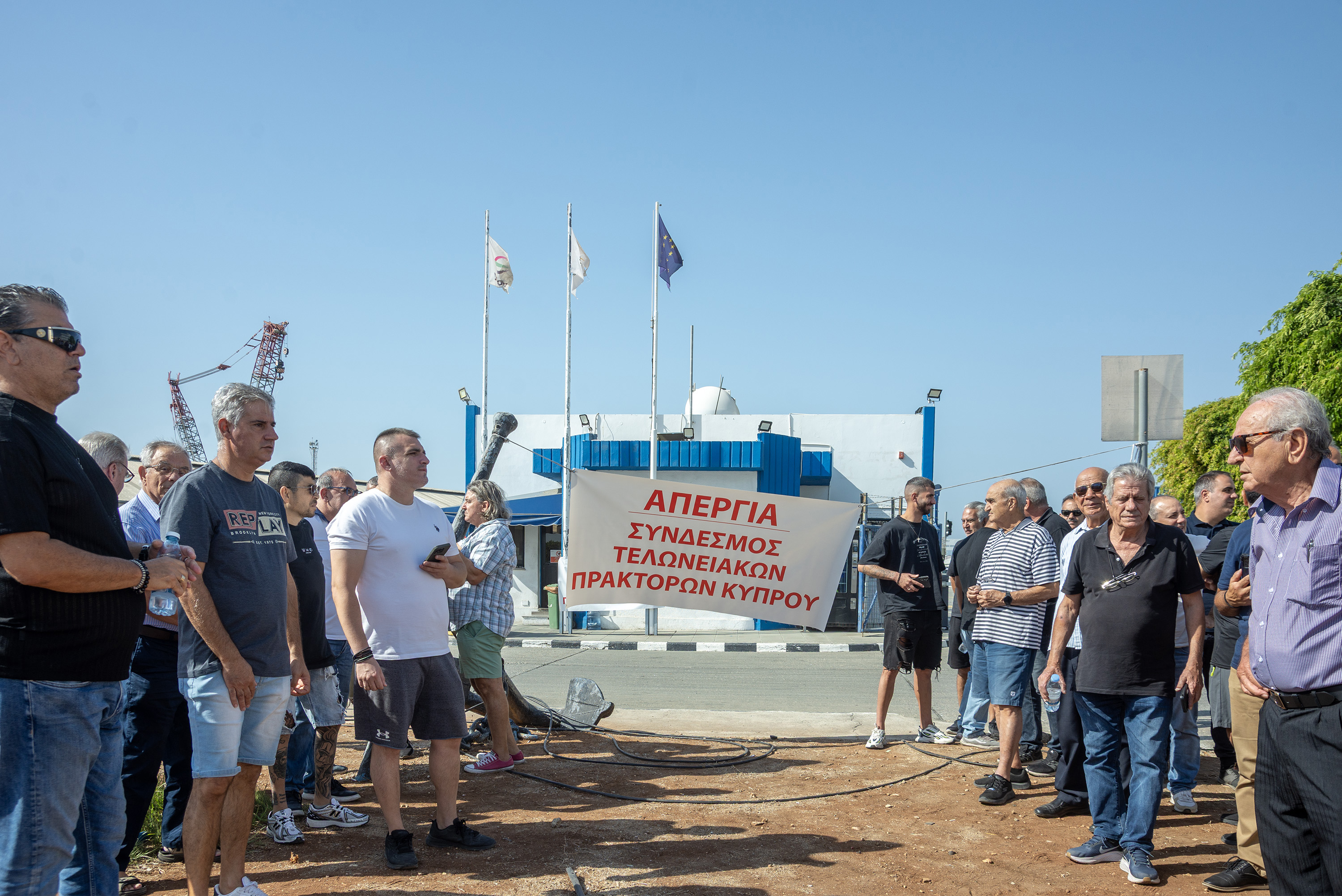Members of the Cyprus customs agents association, who began an indefinite strike on Friday morning over concerns surrounding the new automated import system (AIS), held a meeting with the finance ministry in an effort to resolve the dispute.
“In order for us to return to work, the demands stated in our letter must be met,” head of the Cyprus customs agents association, Christos Akaros said, speaking at the port of Limassol in the morning.
The customs agents had initially launched a 24-hour strike on Thursday, demanding a delay to the AIS rollout – currently scheduled for September 29 – citing persistent issues and shortcomings with the system.
The agents criticised that workers had not been given enough time to familiarise with the new system and eventually extended the strike “indefinitely”, expressing concern about losing a large part of their turnover.
Akaros said a conference call held with the head of the customs department on Thursday afternoon failed to yield any progress.
“The director was not authorised to make any decisions. Only if the ministry decides to postpone the implementation date will the director be able to act,” he said.
He warned that, as a result of the ongoing strike, Limassol port may soon face difficulties managing new container arrivals due to limited storage space. However, he clarified that customs agents would continue to clear non-refrigerated perishable goods, such as fruits and vegetables.
In a statement issued Friday morning, container terminal operator Eurogate said it was “fully ready” to proceed with the AIS launch as planned but expressed “deep concern” over the strike’s potential impact.
“Eurogate expresses its deep concern about the problems expected to emerge in the coming days across the supply chain, trade, and the wider economy due to the suspension of customs clearance,” the company said.
It reassured exporters, importers, and the public that containers cleared prior to the strike would continue to be delivered normally, but added that new cargo was arriving at the port daily.
“With the continuation of the strike, the container terminal will reach its maximum capacity within the coming days and will no longer be able to serve ships docking Cyprus,” it said.
Eurogate urged all parties involved to engage in constructive dialogue to reach an “immediate solution” and minimise disruption to trade and the economy.
Ahead of Thursday’s initial strike, the customs agents association cited an EU directive which recommends a 12- to 24-month training period for new systems. In contrast, the agents said they had been given only four months to familiarise themselves with AIS – after the system was finalised in February and initially slated for launch in June.
The implementation was later pushed back to September 29.
Akaros said training sessions had already revealed multiple problems with the system, which posed a risk of errors and had led to a noticeable drop in productivity.
He also noted that the system had yet to be fully translated into Greek.
The association demanded both the postponing of the implementation of the system until the problems and errors are resolved and the provision of relevant training, adding that they were aware of the “already overcrowded (…) Limassol port.”






Click here to change your cookie preferences